Everyone the Tories are blaming for Britain’s mortgage crisis — except themselves – POLITICO
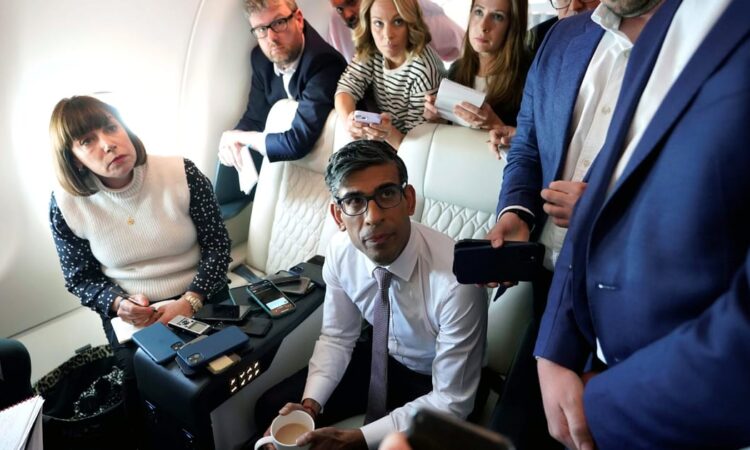
Press play to listen to this article
Voiced by artificial intelligence.
LONDON — The “Tory mortgage penalty,” a high-profile banker or Vladimir Putin — take your pick of who is to blame for Britain’s mounting economic crisis.
The U.K.’s ruling Conservative Party is growing jittery in the face of stubbornly high inflation, which Thursday pushed the Bank of England to raise interest rates for the 13th consecutive time — a move which will hit U.K. mortgage-holders hard.
Hiking rates to 5 percent — a level not seen in 15 years — will result in an immediate sharp rise in monthly payments for some mortgage-holders, and the prospect of higher payments in the near future for others. According to the Institute for Fiscal Studies think tank, some 1.4 million mortgage holders will see their disposable incomes fall by more than 20 percent.
“People are very concerned about what is being described as the mortgage bomb about to go off,” the senior Tory MP Jake Berry told Chancellor Jeremy Hunt in the Commons Tuesday. A former Tory Cabinet minister told POLITICO that it was now “clear we’re going to lose the next election.”
Labour is keen to brand the crisis the “Tory mortgage penalty” — pointing to both the governing party’s long period in office, and the rapid economic meltdown triggered by Liz Truss’ short spell in Downing Street.
Conservatives, unsurprisingly, are equally keen to point the finger elsewhere.
POLITICO has a run-through of the Conservative blame game as panic starts to set in.
Andrew Bailey
No one is taking more heat from the Tories than Andrew Bailey — the Bank of England governor.
Bailey has been under fire for a while from backbench MPs. But after days of Conservative ministers also not-so-subtly hinting that the independent central bank is at fault for the current crisis, Transport Secretary Mark Harper went further Wednesday night.
“Some people make that criticism, yes, and there was a decision to make at the beginning about whether inflation was transitory or not,” Harper told Sky News, when asked if the Bank had been too slow to raise interest rates.
A government aide insisted this was an observation on how far ahead of the curve Sunak was in realizing the threat of inflation, rather than a comment on the bank. Harper added that the government retains full confidence in Bailey. That coded criticism is significant, and rare, due to the Bank’s independent status.
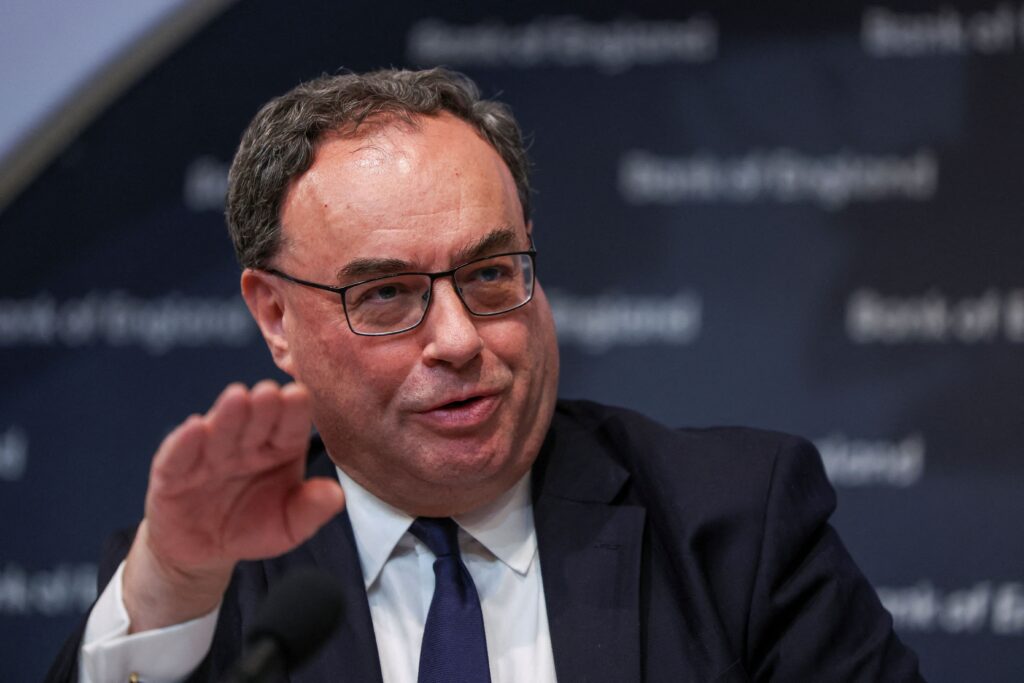
The criticism — which has also come from some of the chancellor’s economic advisers — centers around the bank’s failure to accurately judge the extent of inflation and prepare accordingly. As recently as March this year Bailey said there would be a “sharp fall” in inflation this year. That is yet to bear out.
“It is true that the BoE and much of the world did not have a model that forecast the peak or persistence of inflation,” Giles Wilkes, a former No. 10 special adviser on economic policy, said. “But for the government to blame the Bank is to assert that they somehow wanted much higher and tighter policy, and would have gone for it, had they only had a good Bank there.
“It is like a teenager, suffering from a hangover after raiding the parental cellar, blaming the parents for not making the door stronger,” he added.
Gordon Brown
The Bank of England has been independent since 1997 — when Labour’s then-chancellor Gordon Brown took the decision to set the bank free of government interference as one of his first acts on entering the Treasury.
Treasury Minister Andrew Griffith pointedly reminded MPs of that decision in parliament Tuesday, as Tories questioned the timing and level of Bank interest rate rises.
“The Bank of England sets the base rate, which can have an effect on mortgage pricing, and the Bank has been independent since the decision of the then-Labour Government in 1997,” Griffith said. That assertion — and the not-so-subtle hint that Brown, rather than the current government, should be blamed for any of the Bank’s decisions — was greeted with some minor tittering in the Commons.
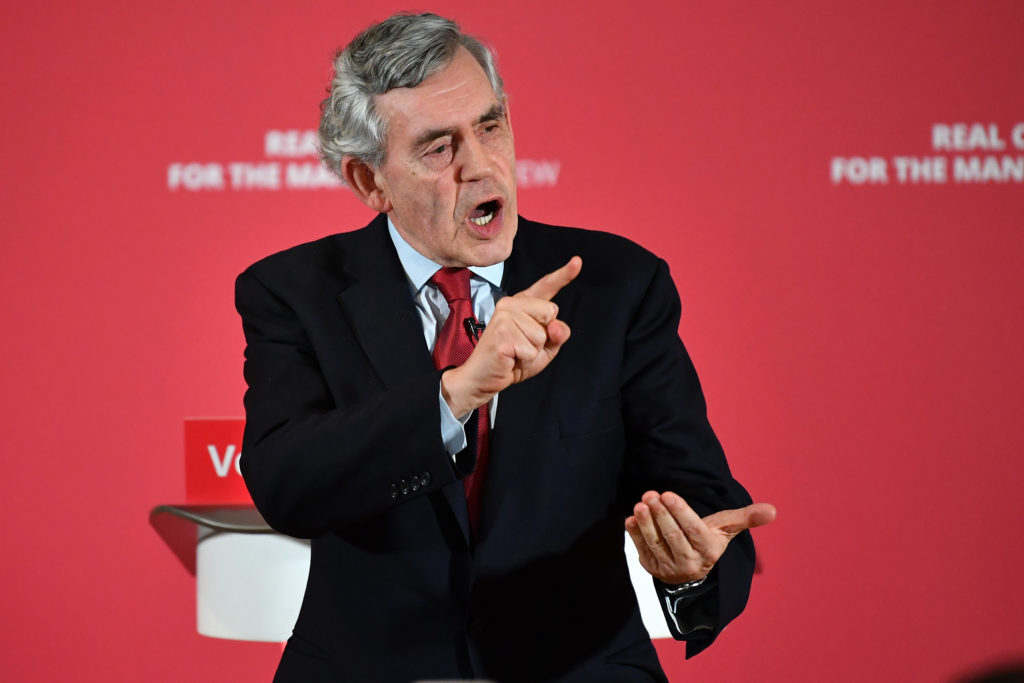
Ex-Prime Minister Liz Truss toyed with the idea of reviewing the Bank’s independence. But Sunak and his government have never indicated that they would reverse Brown’s decision to make the Bank independent.
Brown has also been the subject of criticism for his decision to scrap tax relief on mortgage interest payments, a decision he made in 2000. The right-leaning Daily Telegraph newspaper wrote this week that the move “added £270 a year to your mortgage payments.”
Liam Byrne
Also on the Tory hit list is that last Labour government in general. When asked, by Labour’s Pat McFadden, to apologize to homeowners, Griffith instead referenced the record of a government that *checks notes* left office more than 13 years ago.
“I ask him whether he has learned the lesson from what we saw with the last Labour government, who spent their way through the nation’s finances and whose most lasting contribution to the economy was a note that we inherited from the then chief secretary to the treasury saying there was no money left,” Griffith said, referencing the Conservatives’ favorite election prop — a handwritten note from Liam Byrne as Labour left government joking that “there is no money” left in the Treasury.
Having played a starring role in the Conservatives’ successful 2015 election campaign, the letter has reappeared of late — largely thanks to the enthusiastic new Tory Chairman Greg Hands, who has tweeted out the letter 42 times and counting.
“Joking” is the key word however. Byrne was following an old tradition of Treasury ministers leaving light-hearted letters to their successors.
Vladimir Putin … and a bat in Wuhan
Russia’s full-scale invasion of Ukraine sent the global economy tumbling — at a time it was still struggling to rebound following the coronavirus pandemic.
“We are all dealing with the consequences of Putin’s invasion of Ukraine and the aftermath of the pandemic,” Hunt argued in the Commons Tuesday.
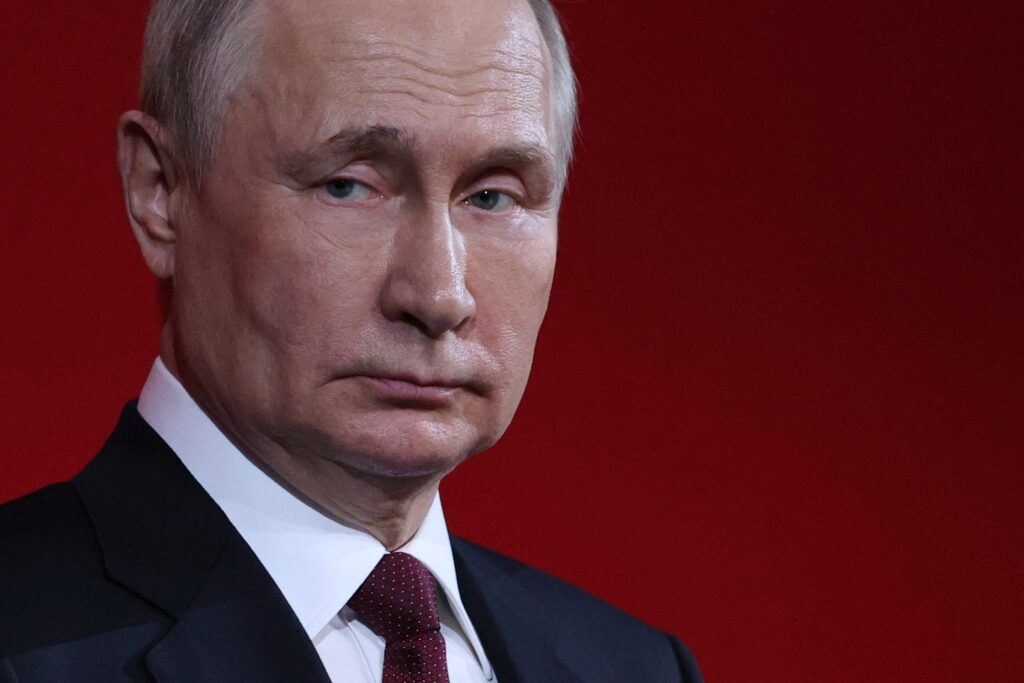
The war in Ukraine contributed to a huge increase in energy prices as well as causing general supply chain and economic damage, while multibillion-pound COVID support schemes drawn up by Sunak fueled inflation.
But despite the global circumstances, it remains the case that the U.K. economy has the highest inflation and second slowest growth in the G7, according to the OECD.
The general public
One of Jeremy Hunt’s economic advisers also turned their fire on, erm, the rest of you.
Speaking on the BBC’s Today program Wednesday, Karen Ward — a JP Morgan strategist and member of Hunt’s economic council — suggested the Bank of England had failed to discourage workers from asking for pay rises.
“[The Bank of England] have to create uncertainty and frailty, because it’s only when companies feel nervous about the future that they will think ‘well, maybe I won’t put through that price rise,’ or workers, when they’re a little bit less confident about their job, think ‘oh, I won’t push my boss for that higher pay,” Ward said.
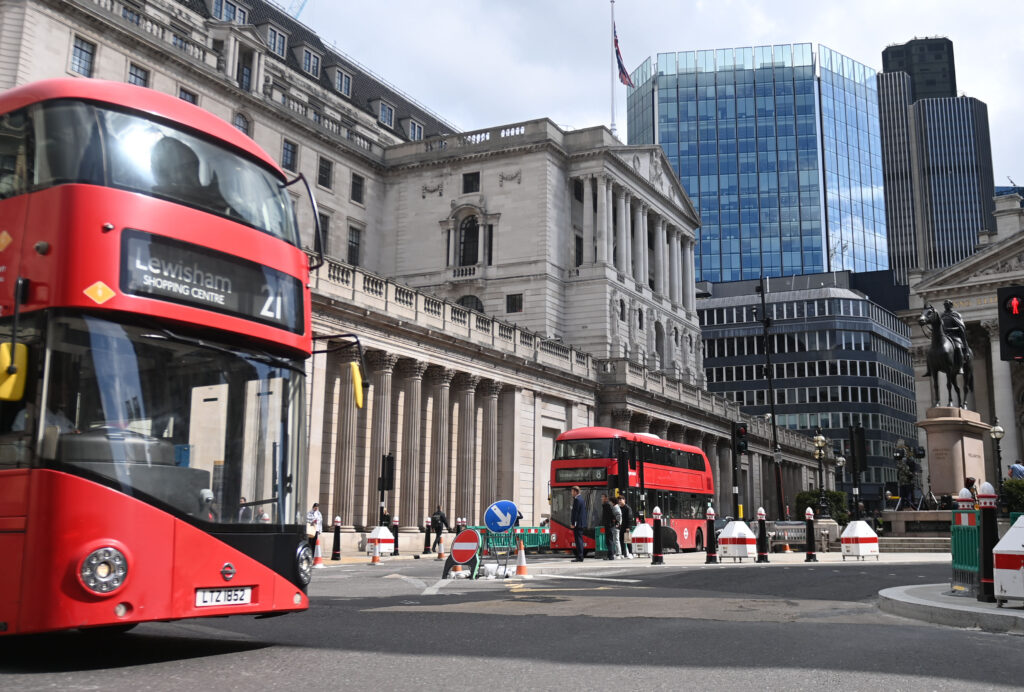
Ward added that the Bank should trigger a recession, in order to discourage Brits from — in her eyes — further inflationary spending and pay rise requests. Given U.K. wages have not grown at the same rate as inflation, that may not prove a popular call.
“It’s sort of quite understandable that workers would be asking for pay rises and wanting to maintain their living standards,” Institute for Fiscal Studies research economist Tom Wernham said. “But it is generally the fact that efforts to reduce inflation are going to be economically painful.”
… and the things they definitely aren’t blaming
Prominent former chancellors: Britain’s mortgage woes have arguably been further exacerbated by government support packages brought in over the past decade to support an already-overheated housing market, such as ex-Chancellor George Osborne’s notorious Help-to-Buy scheme and Sunak’s own COVID-era stamp duty holiday, which critics say lured people into buying property with an illusion of affordability.
Liz Truss: The short-lived former U.K. PM did more than many to tank the Conservatives’ reputation for economic competency. Miatta Fahnbulleh, a Labour candidate and left-wing economist, summed up the opposition’s argument when she claimed Truss’ mini-budget put an “incompetency premium” into the mortgage market.
Austerity: The merits of deep government cuts under former Prime Minister David Cameron in the 2010s, following the global financial crash, are still much debated. Defenders argue it got the U.K. economy back on track and ready to weather subsequent global crises, while detractors argue it strangled economic growth through a lack of investment. “You underinvest in things and eventually they get worse,” said Wilkes, who advised Cameron’s successor, Theresa May.
Brexit: The rupture of Britain’s exit from the European Union was the third major shock to the U.K. economy in as many years, alongside the pandemic and war in Ukraine. Most economists believe Brexit has had a significant and largely negative impact on the U.K. economy, while the government’s economic watchdog, the Office for Budget Responsibility, has stuck by its March 2020 prediction that Brexit would ultimately reduce productivity and U.K. GDP by 4 percent. It was in this context that Nigel Farage, the architect of Brexit, told the BBC that “Brexit has failed.” Tory MPs are mostly keeping mum.





